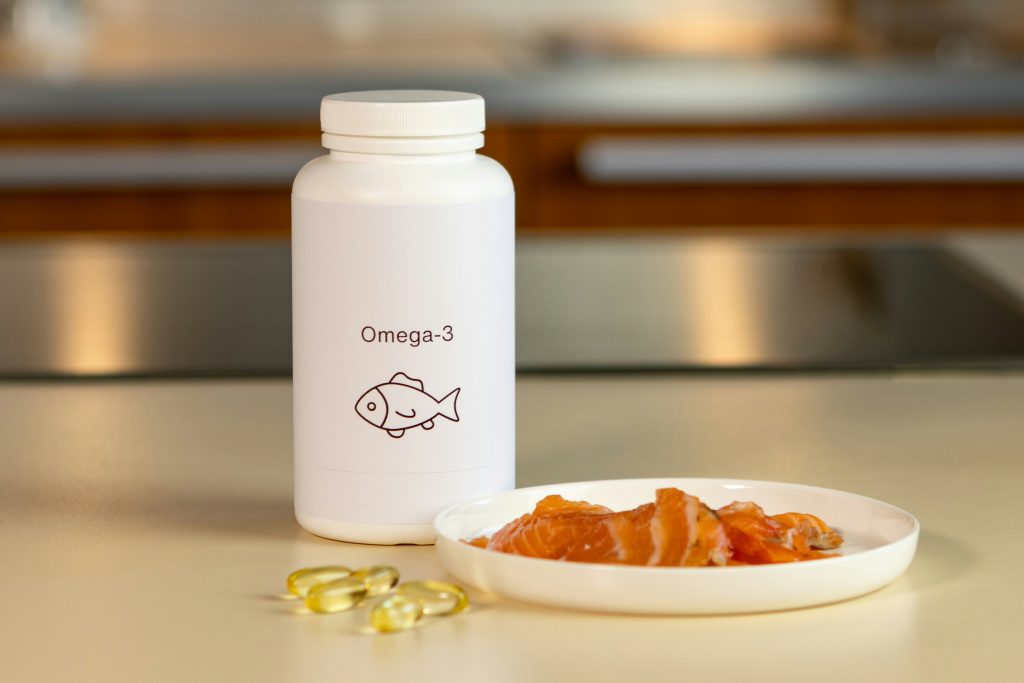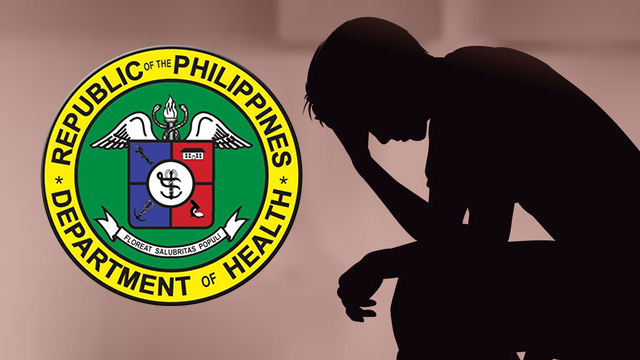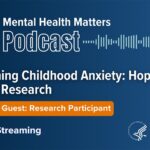The captivating Irish legend surrounding An Bradán Feasa, or the Salmon of Knowledge, narrates the tale of a mystical salmon that consumed the nuts from an enchanted hazel tree, thereby acquiring the wisdom of the universe. This tale features a young warrior named Fionn Mac Cumhaill, who caught this extraordinary fish. In the process of cooking it, he accidentally burned his thumb and, upon sucking his fingers to soothe the burn, absorbed all the knowledge of the world, ultimately transforming into one of Ireland’s most legendary fighters. The myth serves as a fascinating reminder of the timeless quest for knowledge and its profound impact on human potential.
In contemporary discussions, there is an increasing focus on the links between omega-3 fatty acids, prevalent in oily fish and various supplements, and their potential to enhance health outcomes. In the context of psychiatric health, the influence of omega-3s on conditions like depression has been referenced in several insightful articles on Mental Elf (Wessa, C., 2024; Clarke, G., 2023; Crick, D., 2023). These discussions reflect a growing body of evidence suggesting that these essential fatty acids may play a significant role in emotional well-being.
Research has illuminated the critical functions of omega-3 fatty acids in brain health, including their role in preserving the structure of nerve cell membranes, fostering the formation of synapses (the connections between nerve cells), and mitigating inflammation within the brain (Hsu et al, 2020). These biological processes are vital for maintaining optimal neurological function and may contribute to improved mental health outcomes.
In the realm of mental health, disorders such as schizophrenia are believed to involve excessive synaptic pruning and heightened inflammation in the brain (Howes et al, 2023). This raises an intriguing question: Can omega-3 supplementation serve as a preventive measure against the onset of psychosis in individuals identified as being at high risk? Exploring this possibility could pave the way for innovative approaches to mental health care.
In a pioneering trial (Amminger et al, 2010), researchers recruited individuals classified as being at “ultra-high risk” for psychosis (for further details, refer to Yung A & Nelson B, 2013). The participants who were randomly assigned to receive daily omega-3 supplements demonstrated a significantly lower likelihood of developing psychosis compared to those who received a placebo. This finding sparked further interest in the potential of omega-3s as a preventative strategy.
Despite initial promising results, two follow-up studies found no supporting evidence that omega-3 supplementation reduces the risk of psychosis compared to a placebo (McGorry et al, 2017; Qurashi et al, 2024). These contrasting results underscore the necessity for continued research to clarify the potential role of omega-3s in mental health interventions.
The recent study highlighted in this blog (Winter-van Rossum et al, 2024) aimed to assess whether omega-3 supplementation over a period of 6 months would effectively lower the risk of developing psychosis in individuals identified as being at ultra-high risk for psychosis. This research could significantly contribute to our understanding of preventive strategies in mental health.

Could omega-3 supplementation be used to prevent the onset of psychosis in people at high risk?
Research Methods for Investigating Omega-3 Effects on Psychosis Risk
The research team conducted a rigorous randomized controlled trial involving participants aged between 13 and 20 years who were identified as being at ultra-high risk of psychosis. These individuals were recruited from multiple sites across Europe and Israel, ensuring a diverse sample that enhances the study’s reliability.
To determine eligibility, participants underwent a comprehensive interview known as the Comprehensive Assessment of At-Risk Mental States. Inclusion criteria were based on established guidelines for identifying individuals at “ultra-high risk” of psychosis (Yung & Nelson, 2013). This thorough screening process was essential in ensuring that the study focused on the right demographic.
Certain individuals were excluded from the trial if they had a current or historical diagnosis of a schizophrenia-spectrum disorder, were on antipsychotic medication within the last six months, had taken mood stabilizers within the past two weeks, or had been on omega-3 supplements for over four weeks in the past six months. This careful selection process aimed to isolate the effects of omega-3 supplementation accurately.
Following eligibility, participants were randomly assigned to receive either a daily dose of omega-3s (delivered in a pill form) or a placebo that was similar in size, shape, and taste for a duration of six months. The double-blind design ensured that neither the researchers nor the participants were aware of which treatment was being administered, thereby minimizing bias in the results.
Throughout the following two years, the research team conducted multiple follow-ups with participants to assess their mental health status, specifically monitoring for the development of psychosis, which was the primary outcome of the study. The analysis utilized Cox regression to compare the transition rates to psychosis between the two groups effectively.
In addition to the primary outcome, secondary measures were also evaluated, including the severity of psychotic symptoms, symptoms of depression and mania, as well as overall functioning. The researchers also kept track of any serious adverse events reported by participants in both the omega-3 and placebo groups.
Analyzing the Results of Omega-3 Supplementation Trial
In total, the research team evaluated 158 individuals for inclusion in the study, with 146 ultimately randomized into the trial. After applying the exclusion criteria, 67 participants remained in the omega-3 treatment group, while 68 individuals were in the placebo control group. Importantly, the groups were well-balanced concerning age, sex, ethnicity, IQ, and symptom scores, contributing to the credibility of the findings.
Over the two-year follow-up period, 5 out of 67 participants (7.5%) in the omega-3 group developed psychosis, compared to 3 out of 68 (4.4%) in the placebo group. It’s essential to note that outcome assessments were only conducted for 46 participants in both groups due to dropouts, which may affect the overall results.
The Cox regression analysis revealed no significant differences in the transition rates to psychosis between the omega-3 group and the placebo group (HR 1.67, 95% CI: 0.40 to 6.98, P-value = 0.5). These findings suggest that omega-3 supplementation did not confer any protective benefit against the development of psychosis in this population.
Additionally, secondary outcomes measuring the severity of psychotic symptoms, depression, mania, and overall functioning showed no meaningful differences between the two groups. This reinforces the conclusion that omega-3 supplementation may not be effective in this context.
Fortunately, the study reported a low incidence of adverse events in both groups. Only four events were noted in 5% or more of participants, including common ailments like cold, influenza, nausea, and suicidal ideation. The total number of adverse events was 19 in the omega-3 group and 18 in the placebo group, indicating that omega-3s were well-tolerated.

The rate of transition to psychosis was comparable between the two groups but sample sizes were small.
Key Findings and Their Significance
This trial marks the third study indicating that, in comparison to placebo, omega-3 supplementation does not affect the risk of developing psychosis in individuals identified as ultra-high risk. Furthermore, the researchers found no significant impact of omega-3s on the severity of symptoms. They conclude:
The cumulative evidence from three large-scale international studies demonstrating a lack of protective effects of omega-3s on the transition to psychosis suggests that further research in this area may not be warranted, and that omega-3s should not be promoted as a preventive treatment option for individuals at ultra-high risk for psychosis.

This trial is the third to show that, compared to placebo, omega-3 supplementation has no effect on the risk of developing psychosis among ultra-high risk individuals.
Research Strengths and Limitations
This study stands out as a well-executed randomized controlled trial carried out by a skilled team of researchers. Participants were recruited from various international sites, which enhances the generalizability of the findings and minimizes biases that can arise in single-site studies.
The random allocation of participants to either the omega-3 treatment or placebo control groups was conducted meticulously. Both the participants and researchers were blinded to the group assignments, which helps to further reduce bias. Careful measures were taken to ensure that the placebo pill closely resembled the omega-3 pill in size, shape, and taste to prevent participants from inadvertently discovering their group allocation, which could affect the results.
Another advantage of this study was the analysis of blood samples collected from participants to quantify the levels of omega-3 in their bloodstream. The omega-3 group exhibited a marked increase in omega-3 levels from the start to the end of the treatment, while no such increase was observed in the placebo group. This suggests that those assigned to the omega-3 treatment indeed adhered to the supplementation. However, it is crucial to note that these analyses were conducted at the group level, leaving questions about individual changes in omega-3 levels and their correlation with psychosis risk unanswered.
Nonetheless, the study faced limitations. A total of 29 participants dropped out during the six-month treatment phase, either due to the onset of psychosis or being lost to follow-up. Consequently, outcome data were only available for 46 individuals in both groups, which raises concerns about the representativeness of these results for all enrolled participants.
The researchers performed a sample size calculation indicating that 220 participants were necessary to achieve sufficient statistical power to detect significant effects of the intervention. Unfortunately, recruitment challenges exacerbated by the Covid-19 pandemic necessitated an early termination of the trial. While this was beyond the authors’ control, it reduced the statistical power and limited the number of participants to those needed for robust conclusions.

This study was well conducted, applying numerous measures to reduce bias and increase generalisability of the findings.
Practical Implications of Omega-3 Research
What new insights does this study contribute to our understanding of omega-3 supplementation? Among four trials assessing omega-3s in ultra-high risk groups, only one has indicated a beneficial effect in reducing the transition to psychosis, while three studies have found no such advantage. The authors propose that these collective findings do not warrant further investigations focusing on this specific question. However, several important considerations merit discussion.
The authors highlight several potential explanations for their negative findings. For instance, research has indicated that transition rates to psychosis in ultra-high risk populations have been declining over time (Hartmann et al, 2016). This trend may be attributed to advancements in non-pharmacological treatments, such as counseling and psychological therapies. If these interventions are highly effective in lowering transition rates, it becomes increasingly difficult to demonstrate any additional benefits from other treatments, such as omega-3 supplementation.
Moreover, the initial study that reported a positive effect had a smaller proportion of participants on antidepressant medications and employed a slightly different outcome definition compared to more recent trials (Amminger et al, 2010). Consequently, the groups and their respective findings may not be directly comparable.
Does this mean we should abandon all research on omega-3s concerning psychosis prevention? That may be an overly hasty conclusion (or perhaps, throwing out the salmon with the river water).
Given the predominantly negative outcomes from the randomized controlled trials conducted thus far, advocating for additional research specifically in ultra-high risk groups is challenging. Broad concerns also exist regarding the ultra-high risk paradigm, which necessitates specialized clinics that are often unavailable, along with intensive clinical interviews requiring specialized training. Even when such clinics are accessible, many individuals experiencing their first episode of psychosis do not engage with these services (Ajnakina et al, 2019). Therefore, it may be prudent to explore the effectiveness of omega-3s in alternative high-risk groups.
Furthermore, the interventions employed in these studies might not have been optimal. Omega-3 supplements are susceptible to oxidation and degradation over time (Cameron-Smith et al, 2015). It may be more beneficial to consider dietary modifications aimed at augmenting omega-3 intake through natural food sources rather than relying solely on supplementation.
Lastly, targeting interventions at the late teenage years, as done in the ultra-high risk group, may simply be too late. Research suggests that excessive pruning of synapses occurs during earlier developmental stages in conditions like schizophrenia (Howes & Onwordi, 2023). Omega-3s are believed to facilitate brain development by promoting the formation of connections between neurons. Interestingly, a recent study by my colleagues and I indicated that young individuals with low omega-3 levels throughout childhood, adolescence, and early adulthood experienced more severe symptoms of psychosis by age 24 compared to those with consistently average omega-3 levels (Mongan et al, 2024).
Could early interventions with omega-3s, either through dietary changes or supplementation, reduce the risk of psychosis later in life? While we do not yet have definitive answers, this area of inquiry warrants further exploration. This study suggests that the key to understanding omega-3’s potential in psychosis prevention may not reside within the ultra-high risk group but rather in identifying other high-risk populations or enhancing omega-3 intake at a broader population level. Until we attain the knowledge akin to the salmon of wisdom, continued research remains essential!

Until we catch the salmon of knowledge, we need to rely on more research to better understand whether/how omega-3s can be used to reduce psychosis risk.
Disclosure of Interests
David has authored two studies examining the relationship between omega-3 levels and psychosis risk (detailed below), but he did not play a role in the paper currently under discussion.
Mongan D, Perry BI, Healy C et al. Longitudinal Trajectories of Plasma Polyunsaturated Fatty Acids and Associations With Psychosis Spectrum Outcomes in Early Adulthood. Biol Psychiatry. 2024 Nov 15;96(10):772-781. doi: 10.1016/j.biopsych.2024.04.004.
Mongan D, Healy C, Jones HJ et al. Plasma polyunsaturated fatty acids and mental disorders in adolescence and early adulthood: cross-sectional and longitudinal associations in a general population cohort. Transl Psychiatry. 2021 May 31;11(1):321. doi: 10.1038/s41398-021-01425-4.
Essential References and Resources
Primary Research Paper
Winter-van Rossum I, Slot M, van Hell H et al. (2024) Effectiveness of Omega-3 Fatty Acids Versus Placebo in Subjects at Ultra-High Risk for Psychosis: The PURPOSE Randomized Clinical Trial. Schizophr Bull. 2024 Oct 25:sbae186. https://doi.org/10.1093/schbul/sbae186
Additional References
Ajnakina O, David AS, Murray RM. ‘At risk mental state’ clinics for psychosis – an idea whose time has come – and gone! Psychol Med. 2019 Mar;49(4):529-534. doi: 10.1017/S0033291718003859.
Amminger GP, Schäfer M, Papageorgiou K, et al. Long-chain omega-3 fatty acids for indicated prevention of psychotic disorders. Arch Gen Psychiatry. 2010;67:146–154.
Cameron-Smith D, Albert BB, Cutfield WS. Fishing for answers: is oxidation of fish oil supplements a problem? J Nutr Sci. 2015 Nov 23;4:e36. doi: 10.1017/jns.2015.26
Clarke, G. Gut microbiome disruptions in depression: shifting the focus to metabolic signatures in blood. The Mental Elf. 2023
Crick, D. Does what you eat affect how you feel? The Mental Elf. 2023
Hartmann JA, Yuen HP, McGorry PD, et al. Declining transition rates to psychotic disorder in “ultra-high risk” clients: Investigation of a dilution effect. Schizophr Res. 2016;170:130–136.
Howes OD, Onwordi EC. The










